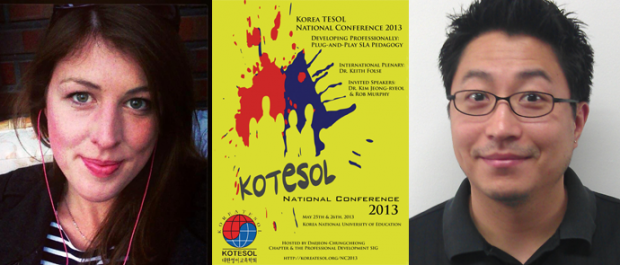
A Survey of CALL Activities in the Korean Context
Melissa Harris and Richard Pak
Abstract
As technology increasingly becomes a more ubiquitous part of our lives, the potential implications for applying CALL in the classroom also increase. As Bax (2003) points out, systematically creating links between SLA theory and CALL practice will help to integrate technology in the classroom in such a way that will support normalisation. In this process, the major goal is to incorporate technology seamlessly and “invisibly” in the class, to the point where the use of such tools is a normal way to achieve classroom objectives. Korea is a world-leader in the use of technology, so this study will survey research literature in the Korean context to see if theory is actually informing practice. Our study will focus on the application of activity theory in CALL practice taking into particular account whether the activities and tasks used in the Korean context in the last 10 years has been with technology, around technology, or through technology (Egbert & Petrie, 2005). Once an inventory of the literature is taken, two specific questions can be asked: 1) How is SLA theory informing CALL practice? 2) Does current CALL methodology think of technology as a mediational tool or is it still merely a novel supplement to classroom practice? The establishment of current methods and trends of CALL application should also provide clearer goals for further research in how CALL methods are being used in SLA contexts. In addition, we hope to describe a range of activities and tasks that teachers can incorporate into their classes that are conducive to the normalisation process.
Bio-sketches
Melissa Harris is currently working at Buchon University. She is also in the process of completing her MA in TESOL at Sookmyung Women’s University in Seoul.
Richard Pak is currently employed at Sookmyung Women’s University. He is also working on his MA in TESOL there.


